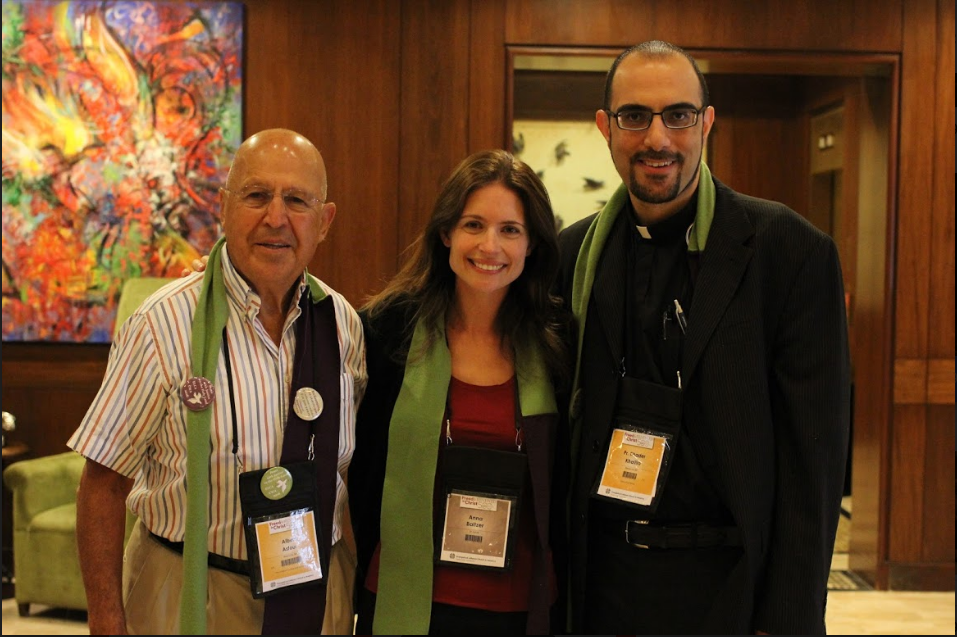Evangelical Lutheran Church in America votes for investment screening, ending aid to Israel
The Evangelical Lutheran Church in America (ELCA) voted on Aug. 13 to adopt an investment screen that would prevent the church from investing in companies that profit from the Israeli occupation and other human rights violations around the world. A day earlier, the ELCA voted for a resolution that calls for an end to U.S. aid to Israel until there is a freeze on the construction of settlements in occupied Palestine.
The campaign to pass these resolutions was led by Isaiah 58, a group of Lutherans who advocate for peace and justice in the West Bank and Gaza. Dale Loepp, a member of Isaiah 58, said that the vote for an investment screen represents a step towards greater action in the ELCA’s policy regarding Palestine.
“Up to this point we passed a lot of resolutions that expressed support but don’t really take any action. So, this particular resolution takes a specific action,” Loepp said.
The human rights-based investment screen requires the Church to divest from companies that profit from Israeli occupation that may currently be in their portfolio. Potential future investments will also be screened to ensure that the Church does not invest in companies with records of human rights violations relating to the occupation.
The vote occurred during the ELCA’s triennial Churchwide Assembly in New Orleans. Each of the Church’s district, or synods, elect a number of representatives proportionate to their Church membership to come to this assembly. According to Loepp, the representatives may be clergy or laypeople and represent a “cross section of the church.”
According to Loepp, during the last triennial Churchwide Assembly, an amendment calling for an investment screen only received the support of 30 percent of the voters. Only three years later, the ECLA overwhelmingly voted in favor of the same investment screen by an estimated 90 percent of votes.
Loepp attributes the shift in support of the resolution to a “big attitude change” concerning the Palestinian-Israeli conflict, particularly among young people.
“The Church itself has worked very hard to bring more young people to the assembly and I think part of this shift is a generational divide. I think young people are more aware of the situation in Israel Palestine generally. I think they’re less tied to cold war ideologies where we have to support Israel no matter what,” Loepp said.
Garik Ruiz, North American Advocacy Advisor of the Palestinian National Committee, agrees that the ELCA’s actions represent the shift in public opinion relating to Palestine and Israel.
“The fact that the investment screen passed with such an overwhelming majority, I think just really shows the fact that in the U.S., within Christian denominations and within the public in general, that opinions are really shifting and really people are becoming more and more aware of the situation in Palestine and how much they need to change, and that BDS, Boycott Divestments Sanctions, is the way that the Palestinian people have asked us to change,” Ruiz said.
ECLA’s vote to end U.S. aid to Israel while settlements are in construction also passed by a large margin—82 percent of voters supported the motion. According Loepp, the ECLA has opposed settlements since at least 2005, however this vote represents the first time their opposition will translate into concrete action.
“We’re requiring our Church leaders to speak to the government, write letters telling them that our official Church policy is that no more unconditional U.S. aid to the state of Israel unless there’s a freeze to settlements,” Loepp said.
The ECLA is now part of a growing list of Churches that have taken actions to avoid profiting off of Israeli occupation. Ruiz believes that more Christian denominations will follow in the footsteps of the ECLA and other churches including the United Methodist Church, Presbyterian Church (USA), the United Church of Christ.
“The fact that the Lutheran Church is now the ninth denomination to take positive steps around their investments in corporations profiting in the Israeli occupation and Israeli apartheid shows that there is a lot of momentum within Christian denominations, and we absolutely expect to work with and continue to move forward with many different denomination in the U.S. as well as around the world,” Ruiz said.




